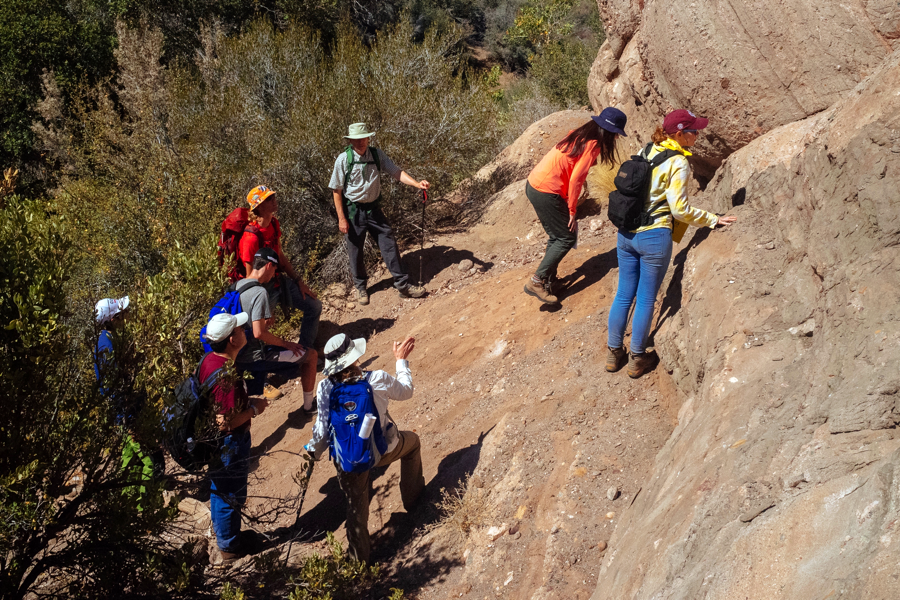All Categories
Featured
Table of Contents
Frequently Asked Questions in Mullaloo Oz 2022
This work is progressively contracted out, so consultancies supply another source of employment. Consultancy companies vary in size, from very small companies to big multinationals. Some consultancies are rather specialised in utilizing specific geophysical strategies or working in specific areas, while others provide a more varied series of services to their customers.
The extraction of gas from landfill websites is another location of employment and this may grow in the future. Exploration business may undertake work for building and construction firms, water business, mining companies and environmental firms, so geophysicists might be employed in any of these settings. Other employers consist of: geological surveysgovernment bodies and agenciesuniversities and research institutes.


Vacancies may be noted in the oil and gas sector press. Recruitment is affected by oil price variations and the level of competition for positions varies depending on this. Careers Days, which cover the complete series of geoscience careers and are typically participated in by a number of essential industry companies, are run by The Geological Society.
Geophysics & Geophysical Surveys in Martin Australia 2023
Some of the big oil and gas companies use a complete two-year structured training program across the breadth of geophysics, consisting of the chance to experience work in various groups before specialising in one location. Your training may include work on: existing wellsmagnetic and gravitational prospective field information analysisresearchrock analysis. However, it's more usual for your preliminary training to be supplied on the task.

There may be a probationary period throughout which you work together with a skilled coworker. Competency-based appraisals happen routinely in a lot of firms. In smaller firms, and for academic posts, there is not likely to be any formal training - you'll be expected to start work straightaway and pick up skills as you go along.
If you work for a smaller company, you may find that you need to take obligation for setting up and moneying your own development and training. If you have a geology degree, membership of The Geological Society can be useful for networking and for maintaining to date with the market.
Geophysical Survey: Plotting Buried Traces Of Human Activity in Como Oz 2020
You might also find it beneficial to join the PESGB (The Petroleum Expedition Society of Great Britain, which has a geophysics unique interest group. After a probationary period, and as soon as you've gained some experience, you might progress to senior geophysicist, then team leader and after that into a senior role in management.
The ease of movement in between roles depends upon the company structure. Research study at Masters or Ph, D level in a subject associated to geophysics or geosciences might assist with your career advancement and progression. The work market within the oil and gas market is very depending on price and this might impact your chances for profession development.
Not all tasks are dependent on the oil and gas industries. For experienced geophysicists, freelance consultancy uses an excellent route for career development. You can also specialise in a particular location of geophysics. As a geophysicist, you're likely to have several jobs throughout your working life. International movement is vital for handling peaks and troughs in various countries at various times.
Geophysicist Salary And Job Description 2023 in Glendalough WA 2021
From geophysics, it's possible to focus on seismology (finishing more training to become a seismic interpreter) or to move into associated locations such as engineering geology or danger prediction.
Choosing what to study in college is a difficult option. Even if you know that your field of interest lies in science, what program of research study is best for you?
The first step to accomplishing your goal of ending up being a geophysicist is making a degree. Even for entry-level positions in the field of geoscience, you'll need a bachelor's degree (a geophysicist college degree) from an accredited college or university. Geophysicists need to be able to: examine rocks, pictures, and other pieces of data carry out research both in the field and in laboratories develop maps and charts of their findings write reports To achieve all this, students need a specialized education for geophysicist careers.
As mentioned above, you'll require a bachelor's degree in geoscience or an associated discipline, such as a physical science or a life sciences, to land an entry-level task. However trainees can likewise prepare by learning subjects like: Biology Chemistry Computer technology Engineering Mathematics Physics The above geophysicist majors use a more generalized method to a single scientific discipline, but the majority of programs require students to take several geology course.
Latest Posts
Geophysical Survey - Salisbury Archaeology in South Guildford Aus 2021
Geophysical Survey in Yangebup Aus 2022
Working As A Geophysicist And Oceanographer In Canada in Singleton Aus 2022